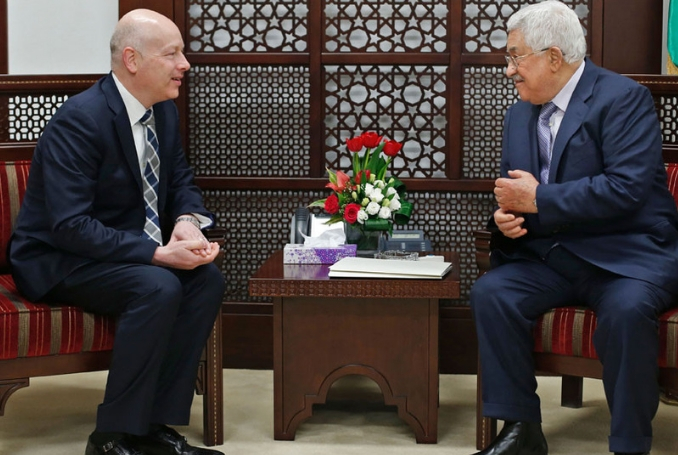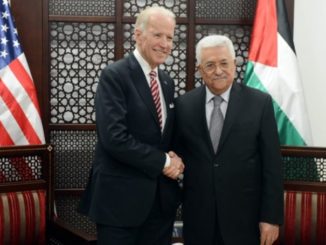
By Ramona Wadi
At the UN Security Council last Friday, US Special Representative for International Negotiations Jason Greenblatt failed to garner support for Israel’s decision to deduct $11 million from the tax revenues to be transferred to the Palestinian Authority. The PA has repeatedly asserted it will not accept any deductions and the international community called for the transfers to be conducted in full, according to the existing agreements.
Following accusations leveled against the PA of “institutionalization of support for terrorism,” Greenblatt described the Israeli decision as being “about the fundamental moral and ethical point that terrorist violence should not be rewarded with compensation.”
Yet it is not only Greenblatt that has attempted a travesty of morality. Writing in Haaretz, PLO Secretary-General Saeb Erekat denounced the US and Israeli efforts to harm Palestinian welfare as “a tool for the Israeli government and the Trump administration to dehumanize Palestinians, while whitewashing the effects of the Israeli occupation over millions of Palestinian lives.”
Erekat’s statement was a response to Greenblatt stating that the US “cares” about the Palestinian people; hence it “seeks to ensure the Palestinian Authority puts the interest of ordinary Palestinians first.”
The US doesn’t care about Palestinians, and neither does the PA. If all the pontificating about rights is eliminated from the rhetoric spouted by Greenblatt and Erekat, only the self-serving interest remains. US President Donald Trump has facilitated Israel’s colonial process by marginalizing the Palestinian narrative on Jerusalem and the right of return, as well as shrinking the PA’s diplomatic visibility. The PA, meanwhile, having nowhere to turn to, is now exploiting the Palestinian narrative to claim its right to full revenue transfers, despite its opposition to armed resistance.
For decades, the PA has exploited Palestinian prisoners, exalting their value during negotiations as a bargaining point. It has glorified hunger strikes and participated in sit-ins for ceremonial purposes. It also recognized the political value of exalting some prisoners above others, keeping in line with what attracts temporary international attention and, as a result, a brief limelight for the PA as it jumps on the bandwagon of purported solidarity.
Erekat declared the PA’s stance over the payments as “a position of principle”. Surely there is a widespread realization among the PA’s echelons that it is too late to claim a principled stance, after decades of perfecting their role as an extension of the colonial violence employed by Israel against Palestinians. The PA cannot forget how its security services contributed to the number of Palestinian prisoners in Israeli jails.
Two years ago, the PA lauded its role in the killing of Basel Al-Araj by Israeli soldiers, a Palestinian intellectual who had been tortured by the PA’s security services in 2016, according to Addameer. During a protest in Ramallah following the murder, Al-Araj’s father was also beaten by the PA’s security forces.
The PA is feigning concern over how the deduction in revenues will affect Palestinian society but offered no apology for rounding up Palestinians to arrest imprisonment, torture, and assassination. Since the PA refused to protect Palestinians engaged in resistance, it must argue the deduction in revenues as a breach of an agreement.
The ramifications should only be argued by Palestinians themselves, who deserve better than Erekat and the PA exploiting the people’s narratives in an attempt to safeguard the elite’s precarious political and financial standing.
– Ramona Wadi is a staff writer for Middle East Monitor, where this article was originally published. She contributed this article to the Palestine Chronicle.








